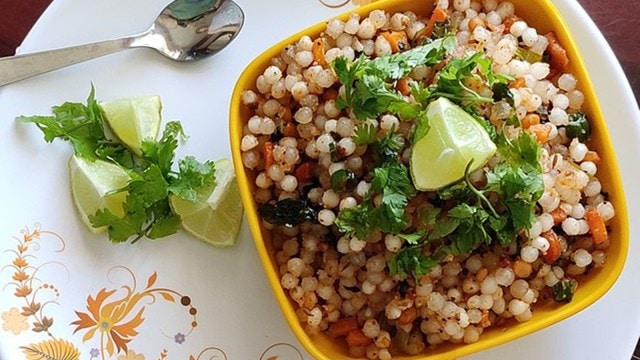📣 For more lifestyle news, click here to join our WhatsApp Channel and also follow us on Instagram
From skipping protein to assuming all fruits are healthy: 5 common mistakes people make during fasting
From starch and carb-heavy meals to fried packaged vrat snacks, small choices during fasting can make a big difference
 Here are 5 common mistakes you might make during fasting (Source: Wikimedia Commons)
Here are 5 common mistakes you might make during fasting (Source: Wikimedia Commons)Fasting during festivals often brings with it a carefully set list of foods that you are ‘allowed’ to have. Yet, even within these options, certain choices can work against the very benefits people seek from fasting.
From starch and carb-heavy meals to fried packaged vrat snacks, small choices during fasting can make a big difference to your health during the festive season.
To help you make the right choices this year, we spoke with an expert to understand 5 common mistakes you might make during fasting and some homemade alternatives you can opt for this time.
5 common fasting mistakes that people make and how to overcome them
Nutritionist Aditi Prabhu, founder at NutroDynamix, tells indianexpress.com, “Fasting, when done right, can have multiple health benefits.”
But, according to her, there are some mistakes that people commonly make, which include:
Mistake 1: Not planning meals.
Solution: Planning meals and meal timings in advance ensures one eats right without long gaps, binge sprees, or energy crashes.
Mistake 2: Ignoring protein.
Solution: Protein provides satiety and prevents sugar spikes. Thus, ensuring protein-rich foods are consumed at regular intervals during fasting is important.
Mistake 3: Assuming all fruits, regardless of quantity, are safe and healthy.
Solution: Yes, fruits are good, but consuming them throughout the day without portion control can cause sugar spikes. Ensuring proper portion control and pairing them with either nuts, seeds, or dairy is key to a steady source of energy.
Mistake 4: Hydrating the wrong way.
Solution: Instead of overindulging in teas, coffees, fruit juices, or lassi, which can lead to hunger suppression, acidity, and even sugar spikes. Focus on plain water, coconut water, buttermilk, and floral teas.
Mistake 5: Overdoing starchy, fried, and packaged foods.
Solution: Most of the foods associated with fasting are starchy, fried, or packaged, such as sabudana khichdi, potatoes tikkis, fasting chivdas or namkeen, which are rich in carbohydrates, fats, and sodium and barely have any other nutrients. Instead, opt for whole foods and healthier cooking methods like baking, steaming, or air frying.
Ensuring adequate protein intake during vrat meals
Prabhu mentions that one can ensure adequate protein intake during vrat by focusing on foods such as Greek yoghurt, dahi, paneer, amaranth, kuttu, nuts, and seeds. Some communities also consume moong dal, which is also a source of protein. Lastly, one can also include a safe whey supplement to meet the protein requirements.
 One can also include a safe whey supplement to meet the protein requirements. (Source: Freepik)
One can also include a safe whey supplement to meet the protein requirements. (Source: Freepik)
Simple, healthier homemade alternatives that can satisfy cravings without compromising nutrition, other than packaged vrat snacks
Prabhu notes, “Yes, many people lean on packaged vrat snacks for convenience.” Instead, opting for healthier homemade alternatives can be a game-changer.
She suggests, “Some good homemade alternatives include roasted makhana, ragira chivda with nuts, rajgira laddoo, nut trail mix, nuts chikki, fruit with Greek yoghurt, chia pudding, fruit with nut butter, roasted or air-fried sweet potato, Sama dhokla, or rajgira thalipeeth. These are easy to make/arrange, satisfying and nourishing too.”
DISCLAIMER: This article is based on information from the public domain and/or the experts we spoke to. Always consult your health practitioner before starting any routine.
📣 For more lifestyle news, click here to join our WhatsApp Channel and also follow us on Instagram


- 01
- 02
- 03
- 04
- 05

























